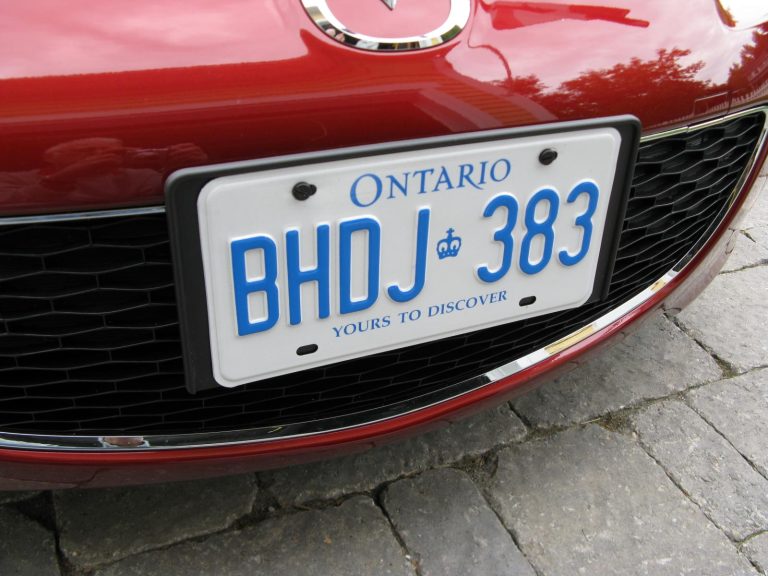Ensuring Your Safety: Mini Cooper Timing Chain Recall: Why It Matters
When we think of a Mini Cooper, we envision zipping through city streets, its iconic design turning heads at every corner. But behind this compact powerhouse lies a ticking time bomb – a defect that has left Mini Cooper owners across the globe reeling.
Enter the Mini Cooper timing chain recall, an issue that has ignited a class-action lawsuit against BMW, the parent company. As the tension builds, impacted owners hold their breath, wondering if justice will prevail.
Brace yourselves as we dig deeper into this automotive debacle, unraveling the complexities, and exploring the potential reimbursements and repairs awaiting those affected. Buckle up, dear reader, as we journey into the world of Mini Cooper’s timing chain defect, seeking truth and resolution.
Mini Cooper Timing Chain Recall
The Mini Cooper timing chain recall refers to a class-action lawsuit filed against BMW due to a defect in the timing chain of certain Mini Cooper models. The lawsuit was initiated by lead plaintiffs who faced significant engine repair costs.
Joining the class-action lawsuit is free for affected owners and the attorney handling the case only receives a fee if they win. In some cases, the defendant may have to cover the plaintiffs’ attorney’s fees.
Once the case is settled, members of the plaintiff class will receive a settlement notice through the mail. Mini Coopers have been found to have design defects, including issues with the timing chain tensioner.
This problem affects models from 2007 to 2010, specifically the R55 Clubman, R56 Hatch, and R57 Convertible with the S motor. Unlike other vehicles, the timing chains in Mini Coopers often need replacement at much lower mileage, typically around 20-30k miles.
A defective timing chain tensioner can lead to chain and engine failure, with symptoms including a rattle noise, oil loss, and loss of power. It is recommended that owners promptly address these symptoms and get their timing chains fixed properly.
The recall was settled in November 2015, with BMW required to reimburse customers for timing chain, tensioner, and engine damage costs. Warranties for these components have also been extended.
The recall specifically covers 2007-2009 Mini Cooper S Hardtop, 2008-2009 Mini Cooper S Clubman, and 2009-2010 Mini Cooper S Convertible models. Reimbursement is available for repairs already paid for related to this recall, with costs fully covered at authorized Mini Cooper dealerships and capped at specific amounts for repairs done at third-party shops.
Key Points:
- The Mini Cooper timing chain recall is a class-action lawsuit against BMW due to a defect in the timing chain of certain Mini Cooper models.
- Lead plaintiffs initiated the lawsuit after facing significant engine repair costs.
- Joining the lawsuit is free for affected owners and the attorney only receives a fee if they win.
- Mini Coopers have design defects, including issues with the timing chain tensioner, affecting models from 2007-2010.
- Defective timing chain tensioners can lead to chain and engine failure, with symptoms such as a rattle noise and loss of power.
- The recall was settled in November 2015, with BMW required to reimburse customers for timing chain, tensioner, and engine damage costs.
Sources
https://www.northamericanmotoring.com/how-tos/a/mini-cooper-2007-2013-what-you-need-to-know-about-the-timing-chain-tensioner-recall-431160
https://www.forthepeople.com/practice-areas/defective-product-lawyers/mini-cooper-timing-chain-recall-what-you-need-to-know/
https://www.miniusa.com/owners/tools-support/recall.html
https://atlanticmotorcar.com/casestudies/good-news-mini-cooper-timing-chain-warranty-extension-recall-reimbursement/
Check this out:
💡 Pro Tips:
1. Contact Mini Cooper or BMW Customer Service: If you own an affected model and are unsure if your vehicle is included in the recall, reach out to Mini Cooper or BMW Customer Service. They will be able to provide you with the necessary information and guidance on next steps.
2. Keep Documentation: If you have incurred engine repair costs related to the Mini Cooper timing chain defect prior to the recall, make sure to keep all documentation and receipts. This will be crucial when seeking reimbursement for the repairs you have already paid for.
3. Be Aware of Symptoms: Familiarize yourself with the symptoms of timing chain failure, such as a rattle noise, oil loss, and loss of power. If you notice any of these signs, it is essential to have your timing chains inspected and repaired promptly to prevent further damage to your engine.
4. Understand Warranty Coverage: The recall has extended warranties for timing chain, tensioner, and engine damage costs. It is important to know the extent and duration of the warranty coverage for your specific model and year. This will ensure that you understand what repairs are covered and for how long.
5. Choose Authorized Repair Shops: If you need to have your Mini Cooper repaired due to the timing chain defect, it is recommended to go to an authorized Mini Cooper dealership. While repairs done at third-party shops may be covered, there may be specific limits on reimbursement amounts. Going to an authorized dealership will ensure that your repairs are fully covered without any caps on costs.
Class-Action Lawsuit Filed Against BMW
In recent news, a class-action lawsuit has been filed against BMW, the parent company of Mini Cooper, regarding a severe timing chain defect in certain Mini Cooper models. The lead plaintiffs in this case have incurred significant engine repair costs and have taken the initiative to file the initial lawsuit.
This legal action aims to hold BMW accountable for the faulty design of the timing chain, which has resulted in costly repairs and potential safety risks for Mini Cooper owners.
Mini Cooper Timing Chain Defect
Mini Coopers, known for their stylish design and compact size, unfortunately also suffer from certain design defects. One notable problem is related to the timing chain tensioner, which has been found to be defective in affected models.
The models that have been identified as having this defect include the 2007-2010 R55 Clubman, R56 Hatch, and R57 Convertible with the S motor.
What makes this defect particularly concerning is that timing chains in Mini Coopers often require replacement at significantly lower mileage than in other cars. While most cars can go well over 100,000 miles before needing a timing chain replacement, Mini Coopers experience issues as early as 20,000 to 30,000 miles.
This premature failure of the timing chain, if not addressed promptly, can lead to severe consequences such as chain and engine failure.
Settlement Notice and Attorney Fees
For those Mini Cooper owners who have been affected by the timing chain defect and subsequent engine damage, joining the class-action lawsuit provides an opportunity to seek justice and potentially receive compensation. It is important to note that joining a class-action lawsuit does not involve any associated costs for the plaintiffs.
The attorney handling the case receives a fee only if they win, ensuring that legal representation is accessible to all individuals affected by this issue.
Moreover, in some cases, the defendant, in this instance BMW, may be required to pay the plaintiffs’ attorney’s fees. This not only emphasizes the importance of holding the responsible party accountable but also alleviates the financial burden for the plaintiffs.
Once the case is settled, members of the plaintiff class will receive a settlement notice via mail. This notice will outline the terms of the settlement and provide instructions on how affected owners can claim their share of the settlement amount.
Design Defects and Affected Models
The design defects in Mini Coopers, specifically related to the timing chain tensioner, have been a cause for concern among owners. The affected models that are covered by this recall include the 2007-2009 Mini Cooper S Hardtop, 2008-2009 Mini Cooper S Clubman, and 2009-2010 Mini Cooper S Convertible.
If you own one of these models and have experienced any issues related to the timing chain or engine failure, you may be eligible for reimbursement and repairs under the settlement.
Symptoms and Importance of Timing Chain Repair
It is vital for Mini Cooper owners to be aware of the symptoms that indicate a potential timing chain failure. Some common signs of a faulty timing chain include a rattling noise coming from the engine, oil loss, and a noticeable loss of power.
If you experience any of these symptoms, it is imperative to get your timing chain inspected and repaired promptly.
Addressing timing chain problems early on can prevent further damage to the engine and potentially save Mini Cooper owners from incurring significant repair costs. Engine replacements, if necessary, are covered under the settlement, but it is crucial to have the problem properly addressed to take advantage of these provisions.
BMW’s November 2015 Recall and Reimbursement
In November 2015, BMW reached a settlement regarding the timing chain defect in affected Mini Cooper models. Under this settlement, BMW is required to reimburse customers for the costs associated with timing chain, tensioner, and engine damage.
Additionally, warranties for these components have been extended to provide added protection to Mini Cooper owners.
The recall specifically covers the 2007-2009 Mini Cooper S Hardtop, 2008-2009 Mini Cooper S Clubman, and 2009-2010 Mini Cooper S Convertible models. If you have already paid for repairs related to this recall, you may be eligible for reimbursement.
It is important to note that while repairs performed at authorized Mini Cooper dealerships are fully covered, repairs conducted at third-party shops are capped at specific amounts.
Ensuring Your Safety: Mini Cooper Timing Chain Recall: Why It Matters
The Mini Cooper timing chain recall is a matter of utmost importance for Mini Cooper owners affected by the timing chain defect. By filing a class-action lawsuit against BMW, the lead plaintiffs have taken a crucial step towards seeking justice and holding the responsible party accountable.
Mini Coopers, known for their unique design and performance, unfortunately, possess certain design flaws, particularly related to the timing chain tensioner. This defect has been observed in the 2007-2010 R55 Clubman, R56 Hatch, and R57 Convertible models with the S motor.
The premature failure of timing chains in Mini Coopers, which occurs at a significantly lower mileage than in other cars, can have severe consequences such as chain and engine failure.
Joining the class-action lawsuit holds no additional costs for the plaintiffs, with the attorney handling the case only receiving a fee upon winning the lawsuit. In some cases, the defendant may need to cover the plaintiffs’ attorney’s fees, ensuring accessibility to legal representation.
Settlement notices will be sent to the plaintiff class members once the case is settled, outlining the terms and instructions for claiming the settlement amount.
Design defects in Mini Coopers have prompted concerns among owners, especially regarding the timing chain tensioner. The affected models covered under this recall are the 2007-2009 Mini Cooper S Hardtop, 2008-2009 Mini Cooper S Clubman, and 2009-2010 Mini Cooper S Convertible.
Recognizing the symptoms of timing chain failure, including rattling noises, oil loss, and power loss, is essential for owners to seek timely repairs.
The importance of repairing timing chain issues promptly cannot be overstated, as it prevents further damage to the engine and potential financial burdens. As part of the November 2015 settlement, BMW is required to reimburse customers for timing chain, tensioner, and engine damage costs.
Warranty extensions for these components provide additional relief to Mini Cooper owners affected by this recall.
In conclusion, Mini Cooper owners affected by the timing chain defect must remain vigilant and take necessary action to protect their safety and financial well-being. Joining the class-action lawsuit and ensuring timely repairs can make a significant difference.
By holding BMW accountable and seeking appropriate compensation, Mini Cooper owners can navigate this challenging situation with more confidence and peace of mind.


